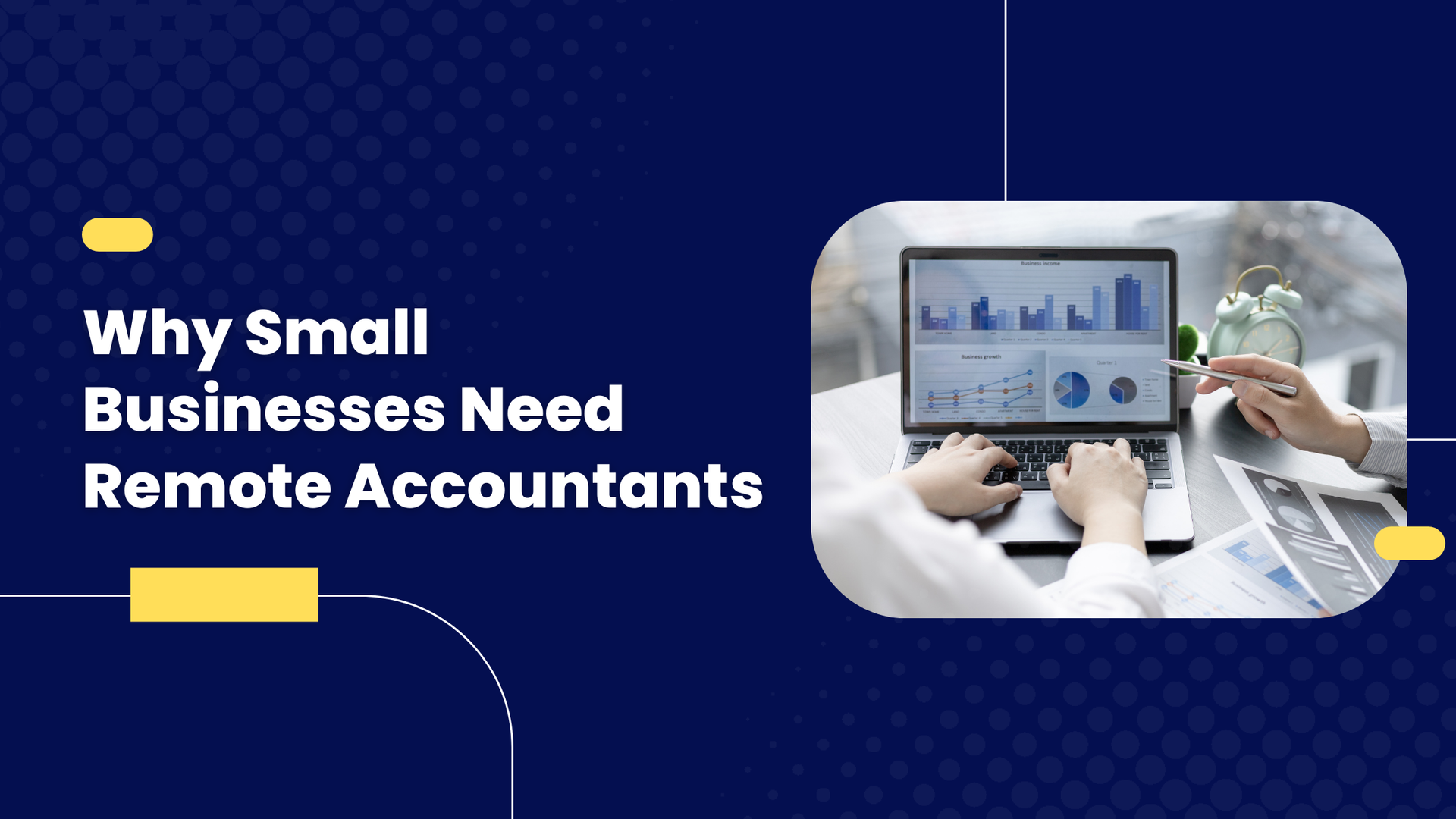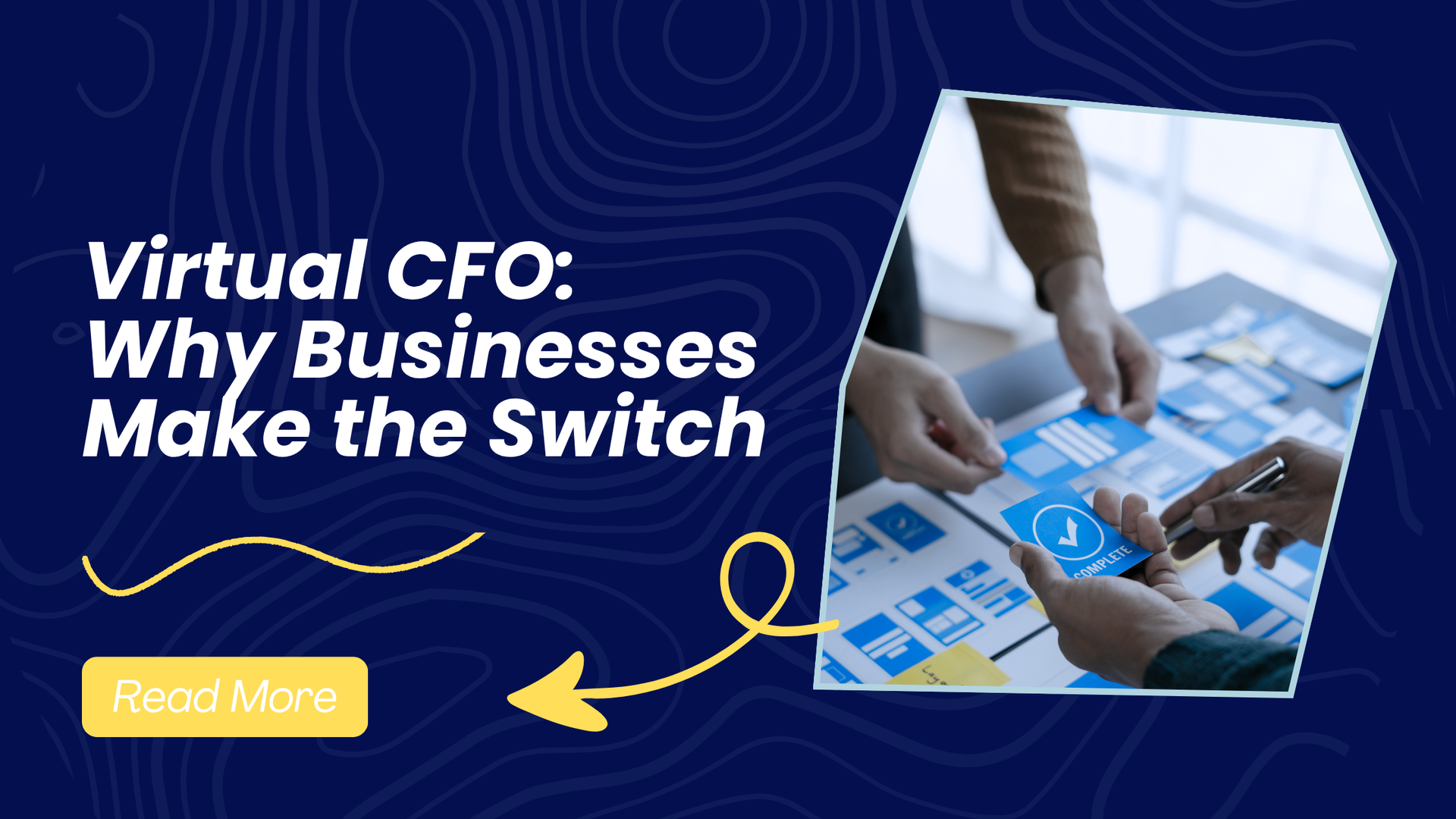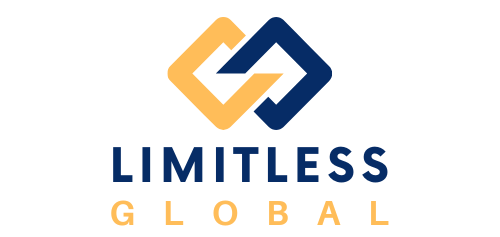Remote Outsourced Financial Controller: A Guide for Startups in 2025
Limitless Global • September 18, 2025
Establishing strong financial infrastructure is critical when starting a new business, yet it’s often an afterthought for early-stage founders.

Great products don’t survive bad accounting. For founders, the smartest first finance hire often isn’t a full-time CFO—it’s a remote outsourced financial controller who can stand up clean books, build controls, and give you decision-ready reporting without the full-time price tag. If you’re searching for a financial controller for a startup or an affordable financial controller you can scale with, this guide breaks down what to expect and when to make the move.
What is a remote outsourced financial controller?
A remote outsourced financial controller (FC) is a senior accounting leader who owns your core accounting engine and the integrity of your financial statements—delivered flexibly and cost-effectively. In 2025, that means more than reconciling accounts. Your controller runs a modern close, designs internal controls, partners with leadership on metrics, and operationalizes your finance tech stack.
Typical responsibilities include:
- Month-end close & reporting: GAAP-compliant close; revenue, COGS, gross margin, and variance analysis; board-ready financials.
- Policies & controls: Segregation of duties, approval workflows, audit trails, and risk mitigation to reduce error and fraud exposure.
- Costing & unit economics: Project/job costing, SKU-level margin analysis, contribution margin, payback periods.
- Forecasting support: Driver-based rolling forecasts and cash runway models; scenario planning for hiring, pricing, and growth.
- Compliance & readiness: Sales tax, revenue recognition (e.g., subscriptions/usage), audit prep, lender compliance, data room organization.
- Systems & automation: Selection and implementation of 2025-standard tools (ERP/accounting, payables, payroll, expense, billing) and AI-assisted workflows.
- Outcome, not overhead: You get the rigor of a senior controller for a fraction of a full-time salary—no compromise on accuracy or accountability.
Controller vs. bookkeeper vs. CFO (quick clarity)
- Bookkeeper: Processes transactions and reconciles accounts. Essential, but not responsible for policies, controls, or analytical reporting.
- Controller: Owns the accuracy of the numbers and the close, implements controls, produces financial/operational reporting, and drives efficiency.
- CFO: Owns capital strategy, investor relations, complex modeling, and cross-functional strategy. Often partners with the controller.
For most pre-Series B teams, a remote outsourced financial controller + part-time bookkeeping covers 80–90% of day-to-day finance needs. Bring in CFO support for fundraising, M&A, or strategic planning sprints.
Five reasons your startup should hire a remote outsourced financial controller
1) You’re growing—and the basics are breaking: Rapid revenue, new SKUs, or multi-entity operations strain “spreadsheet accounting.” A controller formalizes your chart of accounts, accelerates your close, and produces decision-ready dashboards so leadership can act with confidence. Targets we drive toward: a consistent 5–7 business-day close, clean monthly variance analysis, and a single source of truth for ARR/GMV, gross margin, burn, and runway.
2) You’ll know exactly when—and what—to change: Controllers don’t just report—they diagnose. Expect granular margin analysis by product/channel, pricing and discount insights, and opex/right-sizing recommendations tied to your growth plan. You’ll see which levers move gross margin and cash efficiency before you commit spend.
3) You’ll double-down on what’s profitable: With job costing and SKU/SaaS cohort views, you’ll know which products, regions, or customer segments create (or destroy) margin. That translates to smarter roadmap, ad spend, and inventory decisions—and fewer surprises at quarter-end.
4) You’ll stay compliant and audit-ready: From revenue recognition nuances to sales tax and lender covenants, the controller builds processes that hold up under diligence. Clean, repeatable workflows mean faster audits, smoother debt/credit approvals, and credibility with investors and partners.
5) You’ll reduce fraud and operational risk: Segregation of duties, approval thresholds, automated audit trails, and payables controls are your first defense. A controller implements them—so the person who approves spend isn’t the one paying the bill.
2) You’ll know exactly when—and what—to change: Controllers don’t just report—they diagnose. Expect granular margin analysis by product/channel, pricing and discount insights, and opex/right-sizing recommendations tied to your growth plan. You’ll see which levers move gross margin and cash efficiency before you commit spend.
3) You’ll double-down on what’s profitable: With job costing and SKU/SaaS cohort views, you’ll know which products, regions, or customer segments create (or destroy) margin. That translates to smarter roadmap, ad spend, and inventory decisions—and fewer surprises at quarter-end.
4) You’ll stay compliant and audit-ready: From revenue recognition nuances to sales tax and lender covenants, the controller builds processes that hold up under diligence. Clean, repeatable workflows mean faster audits, smoother debt/credit approvals, and credibility with investors and partners.
5) You’ll reduce fraud and operational risk: Segregation of duties, approval thresholds, automated audit trails, and payables controls are your first defense. A controller implements them—so the person who approves spend isn’t the one paying the bill.
When should a startup hire an outsourced financial controller?
Consider bringing in an FC when one or more are true:
- You’re crossing $1M+ revenue/ARR, expanding SKUs, or adding locations/entities.
- Your close drifts past 10 business days or variances are unexplained.
- Leadership spends time on reconciliations instead of growth.
- You’re preparing for debt, a diligence process, or an audit.
- You need unit economics, job costing, or SKU-level margins to steer the roadmap.
- You’re implementing or outgrowing systems (QuickBooks → NetSuite, AP automation, expense, billing).
What “good” looks like in 2025 (the first 90 days)
- Day 0–30: Diagnostic of books, COA redesign, close calendar, policy drafts, approval matrix, and tool stack map. Baseline dashboards for leadership.
- Day 31–60: Shorter close cycle, automated reconciliations, job/SKU costing, cash and runway model, variance analytics and budget vs. actuals.
- Day 61–90: Finalized policies/controls, lender- or audit-ready documentation, rolling forecast cadence, board-quality reporting.
Expect measurable improvements like a faster close, fewer manual touchpoints, clearer margin visibility, and repeatable reporting.
Why this model is affordable for startups
A remote outsourced controller gives you senior finance leadership at a fraction of the total cost of a full-time hire (salary, payroll taxes, benefits, recruiting, management time). You scale hours up or down as complexity changes—paying for outcomes, not idle capacity.
Why Limitless Global
Limitless Global provides remote outsourced financial controller services purpose-built for startups and scaling small businesses. We combine senior CPA leadership with modern tooling and repeatable playbooks so you get control, clarity, and speed—without the full-time price tag.
What we bring:
- Controller leadership: GAAP discipline, close acceleration, audit/lender readiness.
- Modern tech stack: Implementation and optimization of current-gen accounting/AP/expense/payroll/billing tools and AI-assisted workflows.
- Operational insight: Unit economics, SKU/job costing, and driver-based forecasting that leadership can actually use.
- Flexibility: Hourly, monthly, or project-based support that scales with you—truly affordable financial controller coverage for the stage you’re in.
FAQs
What’s the difference between a “remote outsourced financial controller” and a fractional CFO?
The controller owns accurate books, policies, and repeatable reporting. A fractional CFO is strategic finance (capital strategy, investor relations, complex modeling). Many startups start with a controller and layer in CFO support for transactions or fundraising.
Will my team still need a bookkeeper?
Usually yes. Bookkeepers handle transaction coding and reconciliations; the controller oversees accuracy, implements controls, and produces analytical reporting.
Can a remote controller work across tools and time zones?
Yes. Limitless Global supports common 2025 stacks and works across U.S. time zones with clear SLAs for close and reporting.
Get an affordable, senior controller—without the full-time cost
If you’re ready to strengthen your accounting foundation, accelerate your close, and make decisions with confidence, Limitless Global can help. Tell us a bit about your stage and stack, and we’ll recommend the right remote outsourced financial controller plan for your startup.
Limitless Newsroom

A remote accountant gives you senior-level outsourced accounting services without the full-time overhead—so you get clean numbers, faster closes, and decision-ready reports that actually move the needle. If you’re evaluating small business accounting support, this guide shows how Limitless Global delivers clarity, control, and cost efficiency. What is a remote accountant (and why it matters now)? A remote accountant is a finance professional who manages your core small business accounting operations—bookkeeping oversight, month-end close, AP/AR, payroll coordination, sales tax, and management reporting—entirely online. In 2025, that also means owning automations, enforcing controls, and turning your data into insights leadership can use. Here's what we handle: Month-end close & reconciliations: Bank/credit card, revenue/COGS, deferred revenue, accruals. AP/AR & cash flow: Bill pay workflows, collections cadence, 13-week cash forecasting. Sales tax & compliance: Nexus monitoring, filings coordination, audit-ready documentation. Management reporting: P&L, balance sheet, cash flow, variance analysis, KPI dashboards. Systems & automations: Cloud accounting, receipt capture, expense, AP, and payroll tools. Controls & reviews: Segregation of duties, approval thresholds, audit trails, vendor onboarding. How outsourced accounting services work (our remote workflow) 1. Kickoff & diagnostics (Week 1–2): Chart of accounts cleanup, tool review, data access, risk scan. 2. Stabilize & standardize (Weeks 3–6): Close calendar, reconciliations, AP/AR workflows, dashboard baseline. 3. Optimize & forecast (Weeks 7–12): KPI pack, cash model, variance cadence, roles/permissions, SOPs. 4. Run & refine (ongoing): 5–7 business-day close, monthly reporting call, quarterly planning. Security first: Role-based permissions, MFA on all finance tools, vendor verification, and documented SOPs ensure control without friction. Benefits of hiring a remote accountant for your small business Time back for growth: Offload bookkeeping and close so leaders focus on customers and revenue. Higher accuracy: A second set of expert eyes reduces errors, duplicates, and missed filings. Lower total cost: Pay for the scope you need; scale up/down as complexity changes. Real-time visibility: Dashboards and variance insights you can act on—no more guesswork. Risk reduction: Proper approvals, audit trails, and compliance workflows resist fraud and fines. When to bring in outsourced accounting services Your close takes 10+ business days or reports don’t tie out. You’re adding SKUs, channels, or entities and need stronger controls. Sales tax, payroll, or revenue recognition is getting complex. You need cash runway visibility and a reliable 13-week cash model. A lender, investor, or audit is on the horizon. 2025 accounting trends small businesses should leverage AI-assisted bookkeeping: Faster categorizations with human review for accuracy. Automated AP/expense: Touchless invoice capture, rules-based approvals, and scheduled pay runs. Real-time dashboards: KPIs for gross margin, CAC payback, DSO/DPO, and cash conversion. Tighter compliance: More jurisdictions, more filings—good controls prevent costly surprises. Workflow standardization: SOPs that scale as you hire, expand, or fundraise. What does a remote accountant cost? Pricing depends on scope (cleanup vs. monthly close), transaction volume, toolset, and complexity (multi-state sales tax, inventory, or revenue models). Most small businesses choose a monthly retainer for steady operations and add project-based work for cleanups, tool migrations, or audits. We’ll right-size your plan to your stage. How Limitless Global engages (example tiers) Starter (Foundations): Close calendar, reconciliations, AP/AR cadence, monthly financials. Growth (Insights): KPI dashboard, cash forecasting, variance analysis, quarter-end review. Scale (Controls): Multi-entity, advanced approvals, SOPs, audit/lender readiness. FAQs Is a remote accountant the same as a bookkeeper? No. Bookkeepers post transactions; a remote accountant oversees accuracy, closes the books, builds reports, and implements controls. Do I still need a CPA? For tax filings and complex technical questions, yes. We coordinate with your CPA (or bring one in) while running your day-to-day small business accounting. Can you work with my existing tools? Yes—we support leading 2025 cloud stacks for accounting, AP, expense, payroll, and billing. Get started with Limitless Global If you’re ready for clean books, faster closes, and finance you can trust, Limitless Global’s outsourced accounting services are built for modern small businesses. Tell us about your stage and systems—we’ll recommend a remote accountant plan that fits your goals.


